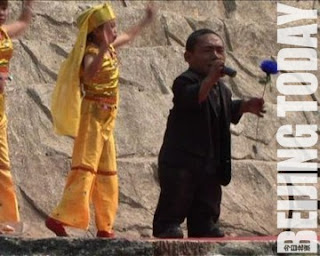After Thursday's lecture on exploitation, we delved into the topic further during section. We inadvertently spent nearly the entire time on one discussion, trying to unpack the facets of a … unique case. In China, an amusement park has opened that is entirely staffed by dwarves. People come to the park simply just for the sights. Is this exploitation?

Some points to consider:
— Without the park, many of these individuals might be unemployable, particularly because of the discrimination that still exists in China. Said one of the dwarves working at the park: "Before coming here, most of us faced discrimination. But here, we are equal and respected. We have our dignity."
— A community has developed among the individuals working at the park. ("We are all very happy.")
— For better or for worse, there are no other options. Though this is a negative reflection on the level of positive liberty within China, at least the dwarves are being given an opportunity of some sort. ("I feel this is our destiny.")
— The owner of the amusement park is just respecting societal norms.
— The business is extraordinarily profitable.

The amusement park garnered international attention after a New York Times article highlighted American criticism of the park, citing a disrespect for basic human rights. But is this a case where the influence of cultural context makes or breaks the argument? Though the "Kingdom of the Little People" would be deemed inappropriate on multiple levels in the United States, it is an economic boon for all involved in China. And what's more, it is not limiting freedom — it's providing a freedom that never existed before, the opportunity for gainful employment.
So are the employees of the amusement park being exploited? Yes and no. While they are being hired simply because of a trait they cannot control, they are being adequately compensated. The Kingdom pays more than many stateside entertainment businesses (which, as another example of questionable exploitation, rent dwarves as leprechauns for St. Patrick's Day). The lifestyle is, in a way, optimal for the employees — they are able to live in a community of people just like them. Though Americans might deem this segregation, for the Chinese, it is an opportunity. Americans look at this example and are appalled, but the context of Chinese societal norms must be taken into account and in this situation, define the case as acceptable. The idealistic voice within us says that such a place as the Kingdom should not exist, but until further opportunities exist for dwarves in China, in a way, it must.
